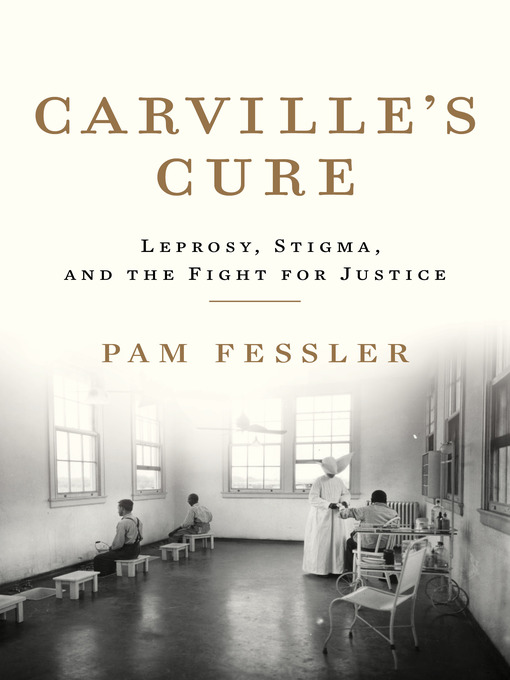
Carville's Cure
Leprosy, Stigma, and the Fight for Justice
جذام، لکه ننگ و مبارزه برای عدالت
کتاب های مرتبط
- اطلاعات
- نقد و بررسی
- دیدگاه کاربران
نقد و بررسی

April 27, 2020
NPR correspondent Fessler’s polished and compassionate debut examines the history of Hansen’s disease (the modern name for leprosy) in America through the story of the Louisiana Leper Home in Carville, La. In the 1890s, New Orleans dermatologist Isadore Dyer established the quarantine facility for leprosy patients on the grounds of a defunct sugar plantation. In 1921, the U.S. Public Health Service took over Carville (as it was called by locals), making it the only national leprosarium in America. Fessler profiles several patients (most of whom were sent to Carville by mandatory state reporting laws), including her husband’s grandfather, and New Orleans debutante Betty Parker, who fell in love with a fellow patient and ran away with him. Fessler also documents the 1941 discovery that the antibiotic promin could be effective in treating Hansen’s disease, and notes that by the 1980s additional medicines had slowed new outbreaks and made most cases manageable. Carville’s planned shutdown was delayed until 1999, Fessler writes, because many remaining patients had nowhere else to go. Her well-researched and articulate account humanizes sufferers and caregivers alike, and offers hope in the medical field’s ability to halt the spread of contagious illness. Readers will be enlightened and encouraged. Agent: Gail Ross, the Ross Yoon Agency.

May 1, 2020
A social and medical history of Louisiana's leprosarium, the only such operation in the continental U.S. during the 20th century. From 1894 until 1999, on the Mississippi River between New Orleans and Baton Rouge, stood the Louisiana Leper Home, later known as Carville. This is the story of the patients, families, and caregivers who contended with Hansen's disease, also known as leprosy, one of the world's most dreaded and misunderstood illnesses. In this fine history, by turns heartbreaking and infuriating, NPR correspondent Fessler begins with the ramshackle sugar plantation that was chosen to house the nation's leprotic population and then moves on to the nature and progress of the disease--in particular, the societal perception of leprosy, which hasn't changed much from its biblical depiction "as God's way of punishing sinners by condemning them to a life of suffering and scorn." This stigma has always clung to those with the disease, and it has been used as a convenient justification for prejudice against immigrants. "Asian immigrants, already a target for those who believed they were taking Americans' jobs, were especially suspect," writes the author. Without descending into melodrama, Fessler paints a clear picture of a class of people who were confined at Carville typically for life, isolated, stripped of their identities (since it might cause backlashes against their families) and their civil rights. The author also shows how Carville became a refuge for its patients as well as a rare integrated institution in the Jim Crow South. Vignettes of the patients, some tracked over decades, humanize the story, as does the depiction of the Daughters of Charity, who cared for the patients and "would prove to be some of [their] strongest allies in their fight for more freedom and rights." Fessler also follows medical developments to treat the disease, which still has the same old stigmas of discrimination, superstition, and ignorance. A caustic story told with empathy and a sharp eye for society's intolerances. (8 pages of b/w illustrations)
COPYRIGHT(2020) Kirkus Reviews, ALL RIGHTS RESERVED.

May 15, 2020
Leprosy (now known as Hansen's disease) is likely the most stigmatized illness in human history. Superstition, fear, and ignorance surrounding the infection have resulted in social ostracism and even imprisonment of the afflicted. Caused by a slowly growing bacteria that can be transmitted person-to-person or by exposure to an infected armadillo, the disease can provoke skin lesions and peripheral nerve damage. Yet an astonishing 95-percent of the human population is naturally immune to Hansen's disease! And for the rest, effective antibiotic therapy is free of charge through the World Health Organization. NPR correspondent Fessler chronicles the "well-meaning but misguided effort to protect public health" at the Louisiana Leper Home (later called Carville) that opened in 1894. Despair, bitterness, and separation from family were prevalent in patients confined there. Fessler presents inspiring and tragic stories of patients who mostly experienced Carville as a prison, sometimes a sanctuary. He also portrays activists and the devoted Catholic nun nurses who cared for the incarcerated population, one of whom, Sister Catherine Sullivan, shared her feeling about the leprosarium, "Mercy is no substitute for justice." Heartbreaking and infuriating.(Reprinted with permission of Booklist, copyright 2020, American Library Association.)

July 1, 2020
NPR commentator Fessler's father-in-law's father contracted Hansen's Disease (leprosy) as a soldier in the Philippines at the end of the Spanish-American War. He returned to New York to start his own business, marry, and raise a family, but eventually the slow-growing disease attacked his nerves, making his fingers and feet numb, and robbed his eyesight. Finally, after consulting a doctor, he, like many others living with Hansen's Disease, was taken away from his home by public officials, isolated, and brought to the leprosarium in Carville, Louisiana, at one time the only leprosarium in the continental U.S. Here, Fessler tells "the story of the thousands of patients, families, and caregivers in the U.S. who struggled against one of the world's most dreaded and misunderstood diseases." In 2004, Marcia Gaudet published Carville, but Fessler had access to more research and archives, making the residents, and their doctors and the Daughters of Charity nuns who cared for them, come alive in this telling. The treatment of those living with Hansen's Disease has had a quiet and shameful history, but Fessler allows for people's voices to be heard in their own words. VERDICT A heart-wrenching story of little-known social history.--Marcia G. Welsh, Dartmouth Coll. Lib., Hanover, NH
Copyright 2020 Library Journal, LLC Used with permission.

























دیدگاه کاربران